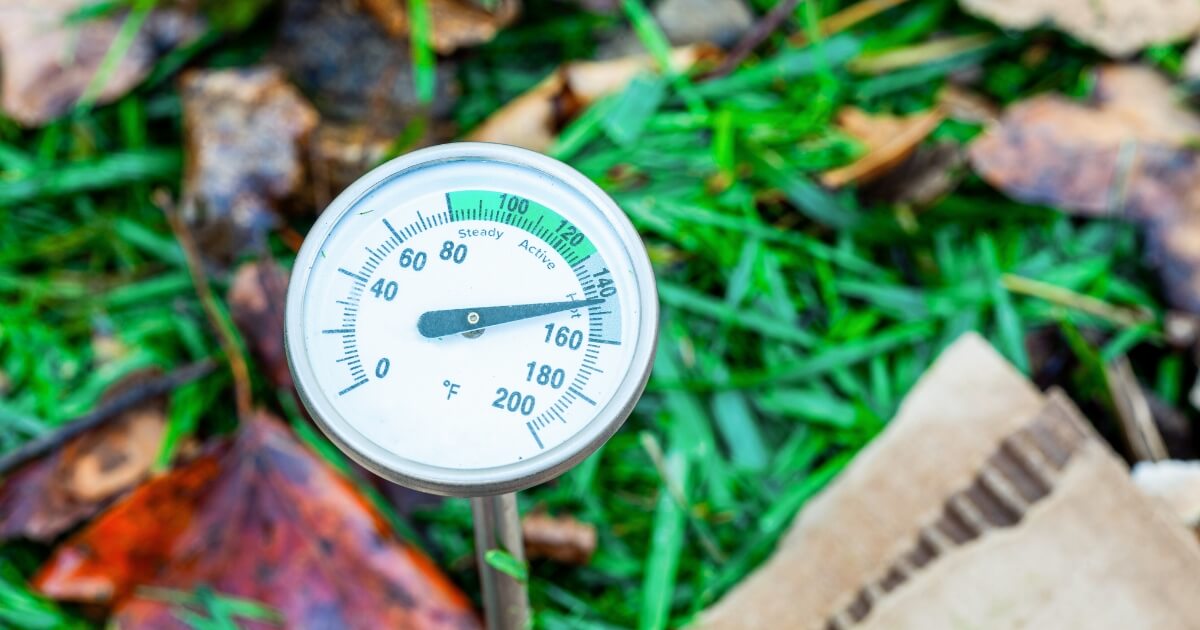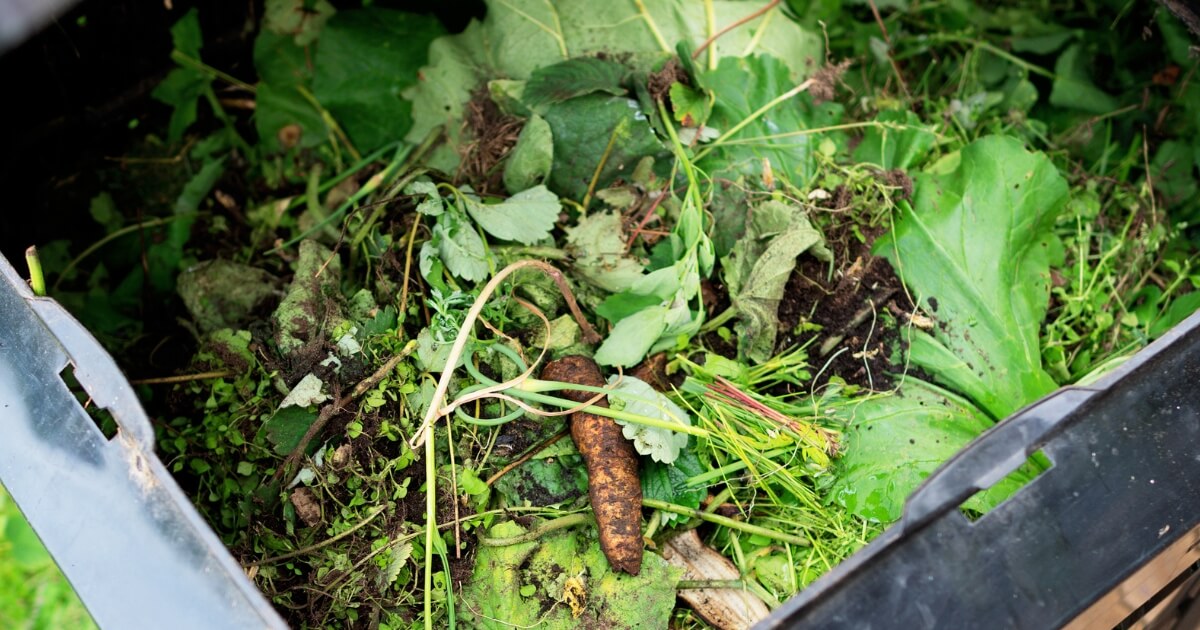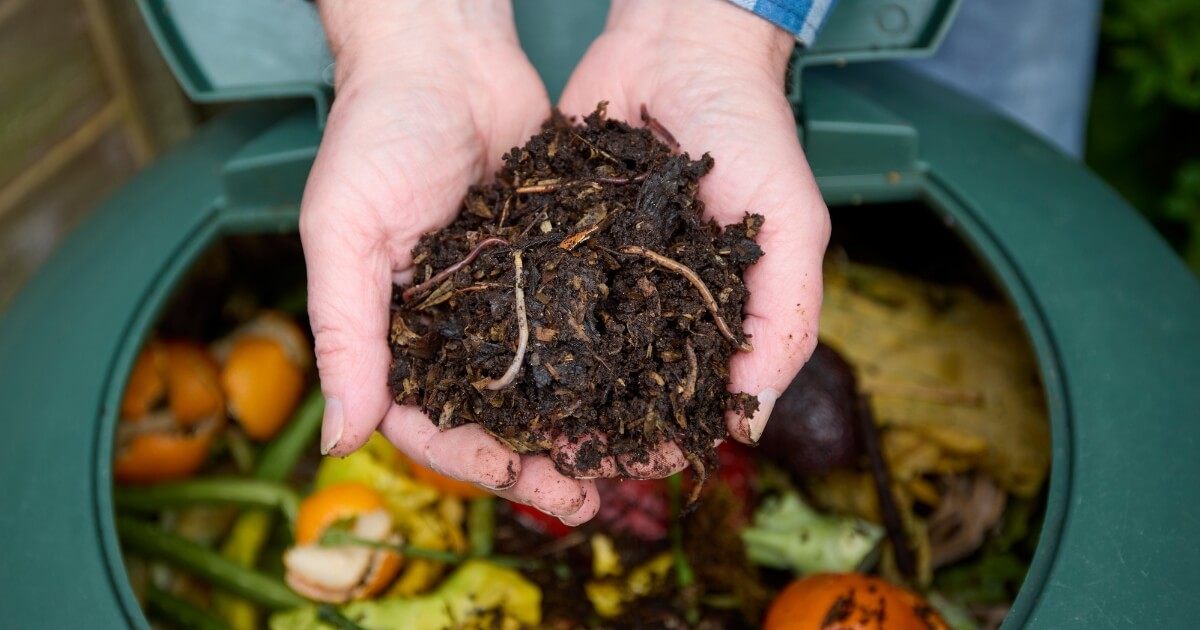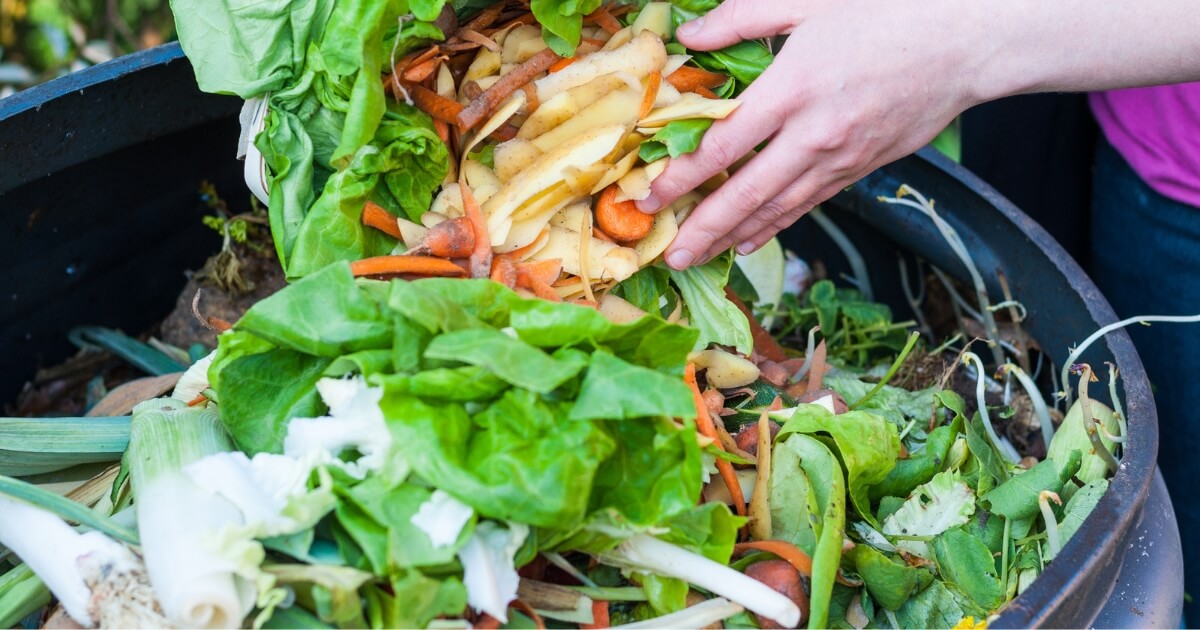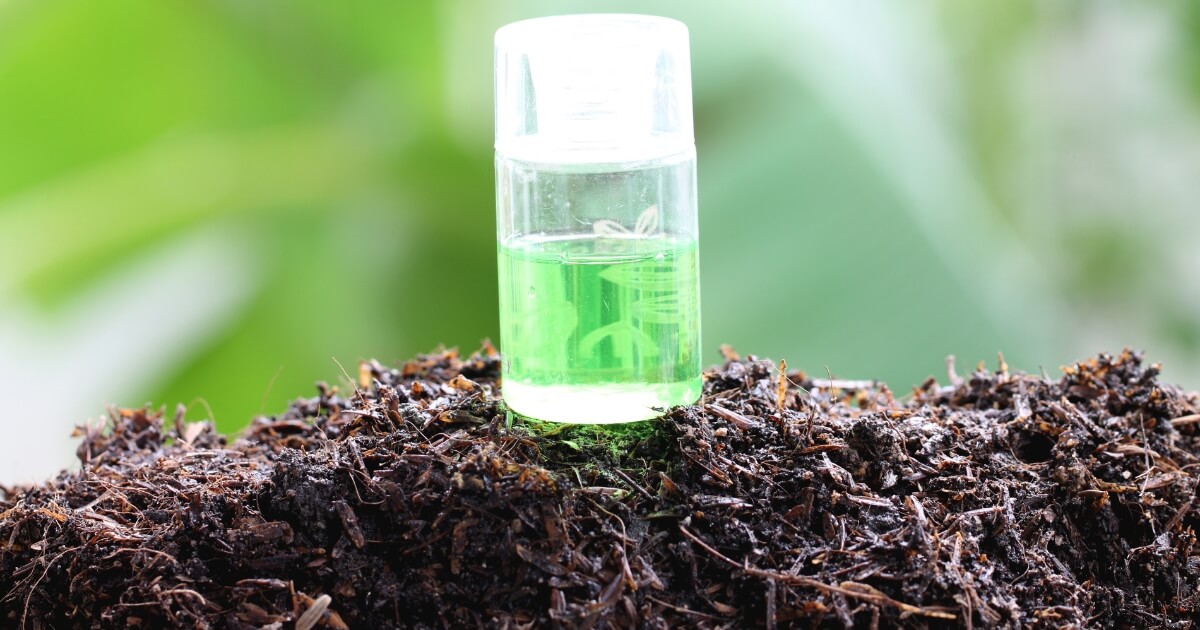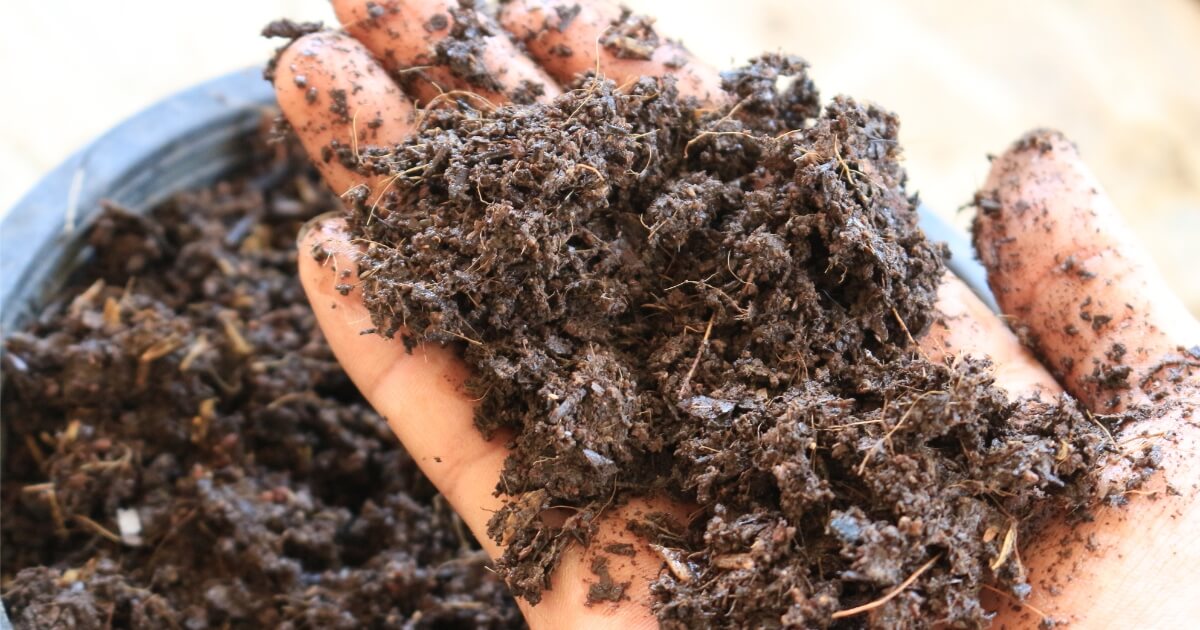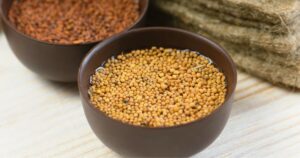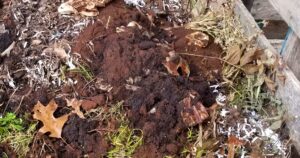Can you put bones in compost? Many people find it surprising that, yes, you can compost bones.
Contrary to what many composting newbies hear about how you should never add bones into compost, it’s perfectly safe to do so.
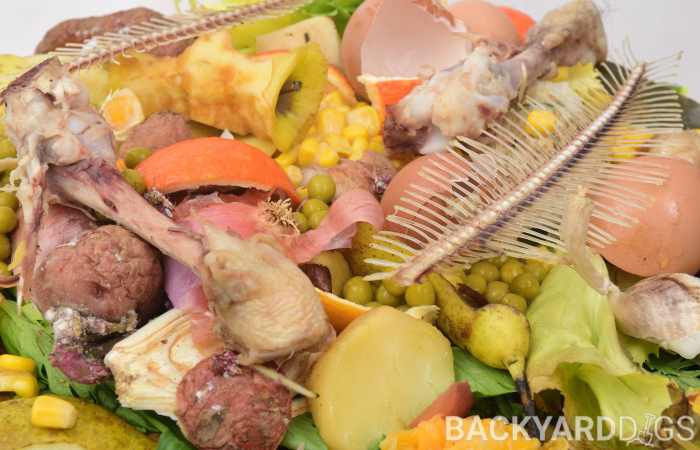
In this guide, I highlight which bones are smart to compost and discuss how long it takes for them to decompose. I also detail the steps you should take to properly compost bones and avoid common issues like odors and pests.
Can You Compost Bones?
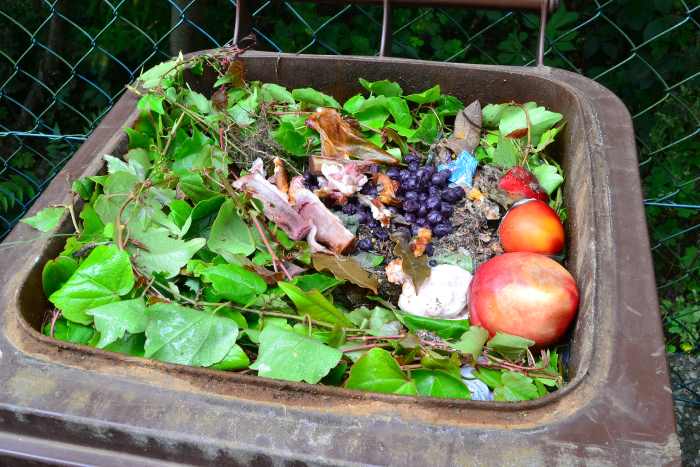
When it comes to composting bones, you need to delineate between these types:
- Chicken
- Pork
- Beef and other wild game
- Fish
Some of these bones are much easier to compost than others, so let’s break down the differences between each type.
Related | Can You Compost Meat?
Chicken Bones
Can you compost chicken bones? Yes, but cooked chicken bones are better to compost to deter the spread of harmful bacteria.
The best thing about composting chicken bones is that they are relatively slim, so they naturally decompose quicker than other types of bones.
Pork Bones
Bones from pigs are also compostable but may take much longer to break down since they are thicker than chicken bones.
Expect the marrow and any remnants of meat to decompose much faster than the bone.
Beef And Wild Game
Most beef bones and other wild game like deer or elk are large and thick, reducing the chances the entire bone will dissolve inside your compost bin or compost tumbler any time soon.
Unless you have plenty of space and time to deal with large bones, it may be best to forgo adding them to your composter.
As an option, some people work beef bones through their compost bin several times over, then sift out and bury the large bones once all the marrow is gone.
Fish Bones
Fish have the easiest bones to compost since they tend to be small and thin, which break apart and quickly decompose.
I find that letting fish scraps dry out before adding them to the compost bin reduces odor issues dramatically.
How Long Does It Take For Bones To Decompose?
Bones buried in the ground can remain intact for several years on up to centuries, depending on the soil and weather conditions.
For those wishing to compost bones, knowing what can speed up the process is extremely helpful.
Bones are calcium phosphate and collagen fibers. The bacteria and fungus that grow inside a compost bin will eat away at the collagen proteins, while acids help break up the calcium phosphate, so the bones begin to disintegrate.
Even within a “hot” compost bin, the full breakdown of bones could take anywhere from a few months for fish bones, to several years for uncut beef bones.
If you plan to compost bones often, consider altering your compost ingredients to lean toward more acidic conditions, which will speed up bone decomposition.
How To Compost Bones
The best way to put bones in compost is to follow these steps:
Step 1 – Go For Hot Composting
Hot composting is the fastest way to reduce animal bones.
The heat generated inside a hot compost pile works with bacteria that thrive in the heated, moist conditions, to speed up the breakdown of bone material and reduce odor.
I do not recommend adding bones to a traditional cold composting pile since animals can easily smell and dig out meat bones.
If you don’t have a hot compost pile, you can dig a hole in your garden at least two feet deep and bury bone scraps.
I lay a flat piece of wire mesh over the hole once I replace the dirt, and place a large rock on top to hold it in place. The mesh deters animals from digging while the bones decompose naturally.
Step 2 – Break The Bones
To encourage fast breakdown, cut or break bones into as small of pieces as possible just as you would vegetable or other scraps you are adding to your compost.
Invest in bone cutting shears to make quick work of cutting up chicken or fish bones.
Use a hacksaw to cut large bones down, or smash them with a hammer into smaller pieces, which will expose more surface to the microbes once you place them in the compost pile.
Step 3 – Compost Pile Placement
Never toss bones on top of your compost pile, and think a layer of leaves will keep pests at bay.
The best placement of bones is deep inside the center of the compost pile, where the temperature should be between 140-160 degrees Fahrenheit.
Here the bones will get a good dose of attention from the microbes, so try not to disturb them for several weeks if possible.
Another reason you want to bury the bones into the center of the pile is to discourage flies from swarming and animals from digging them out.
The more material you have piled between the bones and the outside of the compost pile, the better.
If pests are problematic in your area, consider choosing a compost bin with doors you can secure shut.
Step 4 – Practice Patience
Expect bones in compost to take a very long time to disintegrate fully.
Experiment with the methods you use to prepare bones for the composter and the other ingredients you add, to pinpoint the best technique to achieve optimal results.
You may find that chicken and fish bones completely dissolve in only a few months, but thick bones from beef, pork, or wild game like deer will still take nine months or more.
You can choose to bury or re-compost bone remnants after a compost batch is otherwise complete.
Related | How To Use A Compost Tumbler
In Summary
It’s nice to know that not only can you compost chicken bones, but all types of bone scraps that are common while cooking meals for your family.
Experience for yourself how a bit of preparation and patience will have you composting bones like a pro in no time!

